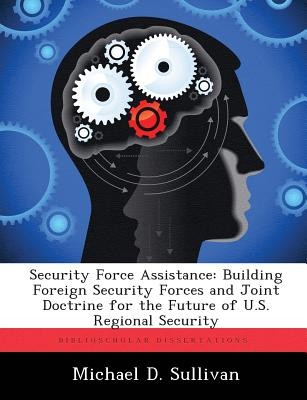
- We will send in 10–14 business days.
- Author: Michael D Sullivan
- Publisher: BiblioScholar
- ISBN-10: 1288317875
- ISBN-13: 9781288317875
- Format: 18.9 x 24.6 x 0.4 cm, softcover
- Language: English
- SAVE -10% with code: EXTRA
Reviews
Description
The United States Military conducted numerous attempts to train Foreign Security Forces over the past 100 years. From training the Nicaraguan National Guard to the most recent efforts in Iraq, the U.S. Military has repeatedly shown a need for a coherent and comprehensive plan to develop foreign security forces. U.S. advisory missions in the Philippines, Vietnam and El Salvador contained positive elements, but none of these past operations contained the necessary framework to organize, train, equip, rebuild, and advise foreign security forces. As a result, the programs were haphazard at best, resulting in both the loss of national resources and delays in achieving foreign policy goals. Even today, when in conjunction with National Strategic Objectives, the United States Government has developed a host of programs to assist a host nation in bolstering their security forces, none of these programs has adequately addressed the threats found in the contemporary operating environment. The contemporary operating environment requires a more comprehensive framework to develop foreign security forces in conjunction with a host-nation. Rogue states, non-state actors, super empowered individuals, trans-national terrorist organizations, religious and ethnic strife, and disenfranchised elements of society all contribute to the difficulties of developing a functional and effective native security force. Today's security forces must possess the capability to defend their nation from both external and internal threats. While the United States Government has some programs available to assist in the security development of other nations, none address the multitude of problems common today. Additionally, the lack of a concise doctrine applicable for general purpose forces greatly hindered past security force assistance missions and remains the biggest obstacle to future mission success.
EXTRA 10 % discount with code: EXTRA
The promotion ends in 18d.16:13:36
The discount code is valid when purchasing from 10 €. Discounts do not stack.
- Author: Michael D Sullivan
- Publisher: BiblioScholar
- ISBN-10: 1288317875
- ISBN-13: 9781288317875
- Format: 18.9 x 24.6 x 0.4 cm, softcover
- Language: English English
The United States Military conducted numerous attempts to train Foreign Security Forces over the past 100 years. From training the Nicaraguan National Guard to the most recent efforts in Iraq, the U.S. Military has repeatedly shown a need for a coherent and comprehensive plan to develop foreign security forces. U.S. advisory missions in the Philippines, Vietnam and El Salvador contained positive elements, but none of these past operations contained the necessary framework to organize, train, equip, rebuild, and advise foreign security forces. As a result, the programs were haphazard at best, resulting in both the loss of national resources and delays in achieving foreign policy goals. Even today, when in conjunction with National Strategic Objectives, the United States Government has developed a host of programs to assist a host nation in bolstering their security forces, none of these programs has adequately addressed the threats found in the contemporary operating environment. The contemporary operating environment requires a more comprehensive framework to develop foreign security forces in conjunction with a host-nation. Rogue states, non-state actors, super empowered individuals, trans-national terrorist organizations, religious and ethnic strife, and disenfranchised elements of society all contribute to the difficulties of developing a functional and effective native security force. Today's security forces must possess the capability to defend their nation from both external and internal threats. While the United States Government has some programs available to assist in the security development of other nations, none address the multitude of problems common today. Additionally, the lack of a concise doctrine applicable for general purpose forces greatly hindered past security force assistance missions and remains the biggest obstacle to future mission success.


Reviews